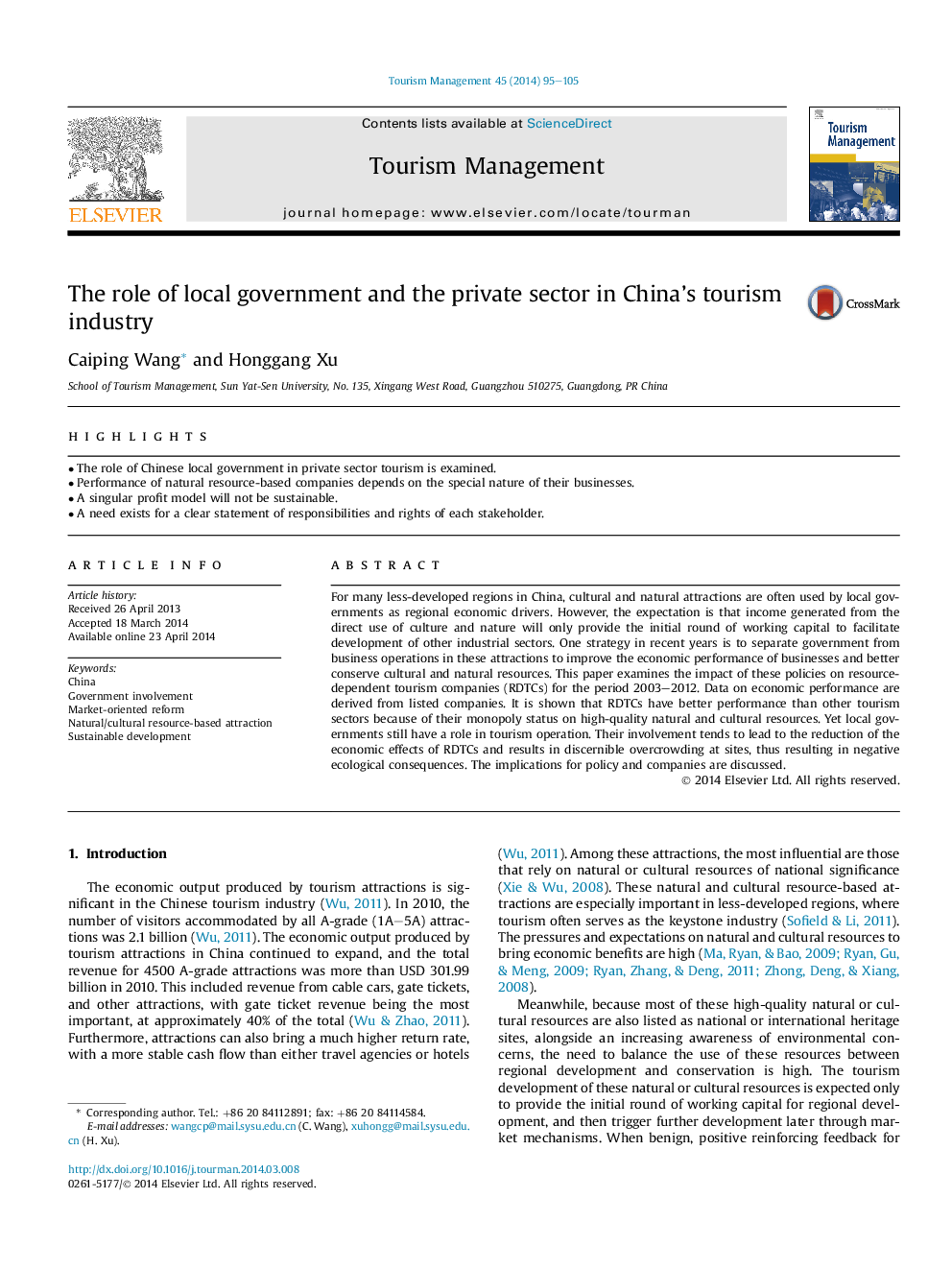| Article ID | Journal | Published Year | Pages | File Type |
|---|---|---|---|---|
| 1012061 | Tourism Management | 2014 | 11 Pages |
•The role of Chinese local government in private sector tourism is examined.•Performance of natural resource-based companies depends on the special nature of their businesses.•A singular profit model will not be sustainable.•A need exists for a clear statement of responsibilities and rights of each stakeholder.
For many less-developed regions in China, cultural and natural attractions are often used by local governments as regional economic drivers. However, the expectation is that income generated from the direct use of culture and nature will only provide the initial round of working capital to facilitate development of other industrial sectors. One strategy in recent years is to separate government from business operations in these attractions to improve the economic performance of businesses and better conserve cultural and natural resources. This paper examines the impact of these policies on resource-dependent tourism companies (RDTCs) for the period 2003–2012. Data on economic performance are derived from listed companies. It is shown that RDTCs have better performance than other tourism sectors because of their monopoly status on high-quality natural and cultural resources. Yet local governments still have a role in tourism operation. Their involvement tends to lead to the reduction of the economic effects of RDTCs and results in discernible overcrowding at sites, thus resulting in negative ecological consequences. The implications for policy and companies are discussed.
